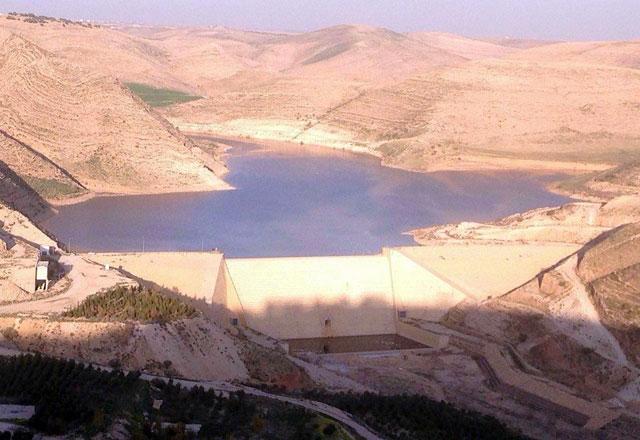You are here
Sand ponds to be built across Kingdom’s desert to collect rainwater
By Hana Namrouqa - Mar 28,2017 - Last updated at Mar 28,2017
AMMAN — Construction is under way to establish 23 sand ponds across the desert before the onset of the next wet season, an official said on Sunday.
The Ministry of Water and Irrigation contracted a local company to establish the new sand ponds in different parts of the desert, according to a ministry's official, who noted that the ponds will be established at a cost of JD1.6 million.
"The new sand ponds are designed to store more than 1.8 million cubic metres [mcm] of water. They are due to be ready to store rainwater before the start of the next wet season," the official told The Jordan Times.
The establishment of the ponds seeks to enhance Jordan's utilisationof rainwater, the official said, adding that the country relies on rainwater to meet its demands.
"The ponds are all part of the ministry's strategy to catch more than 80 per cent of rainwater. To this end, the ministry is also establishing new dams to raise storage to 400mcm by the year 2020," the official at the ministry underlined.
The new sand ponds, being established in cooperation with the Ministry of Environment, are funded under the badia rehabilitation programme, which is funded by the environmental compensation granted to Jordan by the United Nations Compensation Committee (UNCC).
The terrestrial ecosystems of the Jordanian badia were severely damaged following the 1991 Gulf War, when masses of refugees and their livestock — estimated at 1.8 million sheep, camels and goats — crossed the border and stayed in the country for several months.
In 2005, the UNCC granted Jordan $160.5 million in compensation for damage incurred by the Kingdom’s water, environment, wildlife, marine life and agriculture sectors in the aftermath of the Gulf War, in addition to $1.4 million to tackle the salinity of the country’s underground water basins.
The funds are being used to support projects that focus on rehabilitating the badia’s ecosystem to its former status and tackling the negative consequences of random grazing and the deterioration of wildlife.
Related Articles
AMMAN — The government will float a tender next week to raise the walls of the Waleh Dam to more than double its capacity, government offici
AMMAN — Construction work on a project to raise the walls of the Waleh Dam to more than double its capacity has commenced, a government offi
AMMAN — The Kingdom’s 10 major dams now store a third of their total capacity of 325 million cubic metres (mcm), according to the Ministry o

















